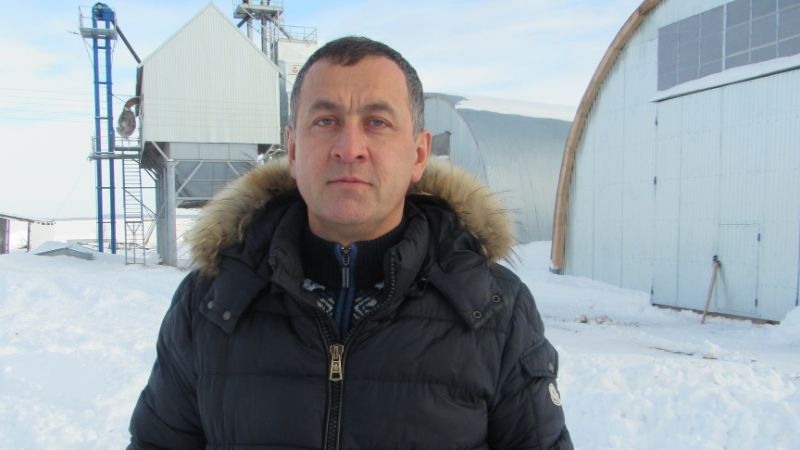Prudent owner is the key to the success of agrofirm in Tetyushsky district

Every week we write about people who have started their businesses in the countryside, family farms and young entrepreneurs. One of these people is Radik Nurgaliyev from Tetyushsky District. He was born and grew up in the Maliye Atriasy, there he received the first lessons of peasant labor. Today he is the general director of Agrofirm Nur LLC, which has become one of the leading agricultural enterprises.
The head of "Nur" has no special agricultural education, but despite this, everything in the economy is done as it should be. Radik Nurgaliyev has the most important thing - a great desire to do his job. Take, for example, such an agronomical concept as crop rotation. We can say it is the foundation of any agriculture. In "Nur" it is a law. And the structure of the acreage is developed deliberately, and there is concern for the reproduction of soil fertility. Any meticulous agronomist will ask: is there any clean or busy steam in Nur? We answer: there is, about 500 hectares annually, and this is 10% of arable land. In the middle - siderat, mustard, excellent green fertilizer for far fields. There is also a straw plowed. And those fields that are closer to farms receive organic matter - up to 10 thousand tons per year. And not directly from cowsheds and calves, but from burt, where they get prepared during two years, turn into humus, and then in loose form it is put into the soil. Again, there are a lot of perennial grasses - almost 1000 hectares, and rape is there, and peas, and this works on the fertility of the land, and on the soil structure, and on its biology.
Over the past 5 years, grain yield at Nur has increased by 16.8 centners per hectare, and cash proceeds from the sale of agricultural products has doubled. In 2017, the farm produced 42 centners of grain per hectare. Last year was draughty but the farmers of "Nur" managed to get 36.3 centners of grain per hectare. They managed to do this thanks to the round-the-clock work on spring fields for harrowing, cultivation and sowing. Short deadlines of works and their high quality - these are the main arguments in the struggle for moisture.
“This year the earth was like a stone because of the drought, the plowshares bent, the stands broke. Nevertheless, the tillage was carried out on all fields, having bribed deep-rippers, and we have seeds in case of re-sowing of winter crops, and technical equipment in case of an increase in the volume of spring field work will allow to cope, ”says Radik Galimzyanovich.
The stack of mineral fertilizers shows the level of Nur’s readiness . For the harvest of last year, 70 kg of active ingredient per hectare of sowing were added, now it is planned to deposit at least 80 kg a.v./ha. At the moment, the amount of 40 kg ai / ha is already available. Harrows, cultivators, drills, hitches and rollers have been repaired in the fall.
All these things require money. Therefore, a farm without a bank loan cannot function: all resources, when field work goes on, should be done on time. However, there are own sources of finance on the farm. And this is not only grain and seeds, but also, for example, potatoes that are cultivated for irrigation and their output per hectare last year amounted to 350 centners, and gross production - 2070 tons. Livestock farms is even more tangible money provider. They are being reconstructed, the cowsheds are equipped with milk lines. The diet of cows consists of hay, silage, all sorts of protein and vitamin supplements and premixes. So, last year, gross milk production amounted to 1954 tons. Meat produced raised 161 tons.
Much is being done not only for the direct activities of the agrofirm, but also for the life of fellow villagers. The agricultural firm "Nur" has control over the issue of supporting villages. Provision with hay and straw of private farms in Alaberdino, Bolshie and Malye Atresey, clearing roads in winter, financial assistance to the executive committee of a rural settlement in conducting festive events, providing transport for urgent needs of villagers. All this Radik Galimzyanovich considers for himself as not a burden, but an important necessity. The density of livestock among the population in the Bolsheatryasky settlement is one of the highest in the region.